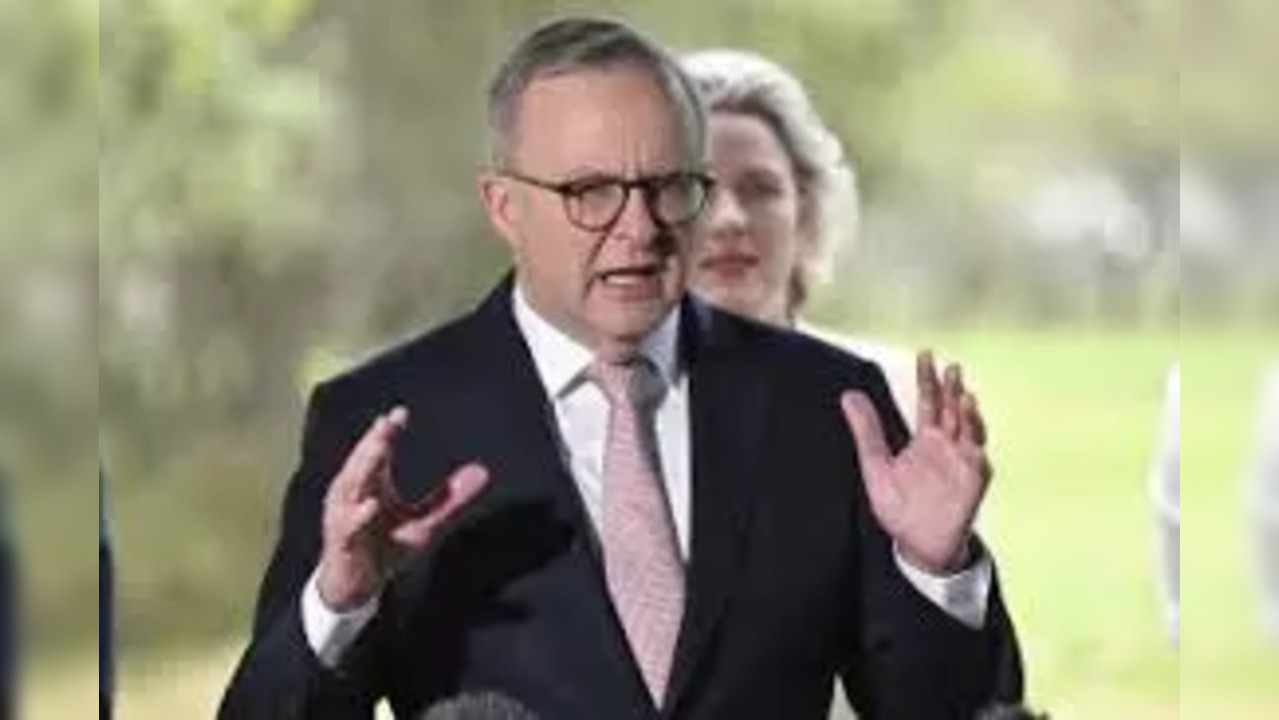The Australian government, led by Prime Minister Anthony Albanese, has unveiled a groundbreaking initiative aimed at banning children under the age of 16 from using social media. This proposed policy, which is anticipated to be the first of its kind globally, marks a significant step in addressing concerns over the impact of social media on young people’s mental health and well-being. Australian authorities aim to implement this legislation later this year, with the potential for it to come into effect as early as late next year.
Why Ban Social Media for Children Under 16?
Prime Minister Albanese’s stance on social media and its effects on youth is clear: “Social media is doing harm to our kids and I’m calling time on it.” Speaking at a recent press conference, Albanese emphasized that the mental and emotional well-being of children is being compromised by the unchecked content and influence of social media platforms. The Prime Minister argued that children are being exposed to content that may promote harmful ideals, such as unrealistic body standards, social pressures, and, in some cases, misogynistic or sexist views. These influences, he warned, are especially detrimental to young teens already navigating the challenging and formative years of adolescence.
According to Albanese, “If you’re a 14-year-old kid getting this stuff, at a time where you’re going through life’s changes and maturing, it can be a really difficult time.” He underscored that young minds are vulnerable to the persuasive, and sometimes toxic, influences that social media can introduce, particularly when it comes to shaping their self-image and worldview.
The Enforcement Strategy: Age Verification System
To enforce this social media restriction, Australia is in the process of developing an age-verification system to keep underage users off these platforms. This system, currently in its testing phase, is designed to ensure that children below the age threshold are unable to create or maintain social media accounts. This verification mechanism is anticipated to play a central role in the successful implementation of the ban and could be fully functional by the end of next year, assuming the legislation progresses as planned.
The age-verification system represents a proactive approach to addressing the loopholes and challenges that have historically plagued efforts to regulate underage access to social media. Unlike other systems where responsibility for age verification may lie with parents or the children themselves, Australia’s model seeks to shift the onus onto the platforms, ensuring stricter compliance and preventing easy workarounds.
Implications for Social Media Platforms
Under this new legislation, social media giants will carry the primary responsibility for enforcing these age restrictions. Popular platforms like Instagram and Facebook (owned by Meta), TikTok (owned by Bytedance), X (formerly known as Twitter, owned by Elon Musk), and YouTube (owned by Alphabet) will be required to take direct action in preventing users under the age of 16 from accessing their services. The policy’s strict stance includes no exceptions: even if a child has parental consent, or if they previously had an account, they will not be allowed access.

The idea is to relieve parents of the difficult task of monitoring and enforcing social media boundaries, placing the onus squarely on the corporations profiting from these platforms. Michelle Rowland, Australia’s Communications Minister, hinted that this legislation is a bold attempt to confront the social media giants and hold them accountable for their role in young people’s online experiences. As a result, tech companies will be forced to reassess and possibly redesign parts of their infrastructure and policies to adhere to the proposed legislation.
The Global Context: How Other Countries Are Responding
Australia’s proposal aligns with a growing trend worldwide to implement stricter regulations around social media usage among minors. Countries such as France and the United States have taken preliminary steps in this direction. France, for instance, has proposed a social media restriction for children under 15 but with provisions allowing parental consent to override the restriction. Meanwhile, in the United States, children under 13 are generally required to obtain parental consent before joining social media platforms due to the Children’s Online Privacy Protection Act (COPPA), although enforcement and compliance vary across states and platforms.
What sets Australia apart is the uncompromising nature of its approach. Unlike France or the U.S., Australia’s proposal includes a blanket ban with zero exceptions for minors under 16, signaling one of the strictest regulatory stances globally. If passed, Australia’s policy could become a template for other nations considering tougher social media restrictions for children, potentially setting a new international standard in online child safety.
Potential Impact and Public Reaction
The proposed social media ban has already ignited discussion and debate. While there is significant support among parents and advocates for child welfare, concerns remain about the practical implications and unintended consequences of such a sweeping restriction. Some critics argue that a strict ban may drive young users to seek less-regulated, potentially more dangerous online spaces, or encourage them to find ways to circumvent the ban.
Moreover, questions have been raised about privacy and the ethics of age-verification systems. While intended to protect young users, such systems may raise issues concerning data collection and privacy, with critics cautioning against an overly intrusive approach. The government, however, has stated that any age-verification measures will prioritize user privacy and operate within a framework that aligns with Australia’s privacy laws.
Looking Forward: What’s Next for Australia’s Social Media Policy?
As the Australian government prepares to introduce this legislation later this year, there will likely be discussions, amendments, and refinements to address public and corporate concerns. The social media platforms affected by this ban will have to engage closely with the government, either to negotiate certain terms or to develop compliant solutions that satisfy the law’s requirements. For Australian parents and child advocates, the introduction of this policy marks a hopeful step towards greater control over what children are exposed to online.
In the coming months, the legislation will undergo parliamentary scrutiny, with input from both supporters and critics. Whether Australia’s ambitious plan to ban social media for children under 16 with no exceptions will face challenges in court or implementation remains to be seen. However, the proposal itself has already placed Australia at the forefront of a global debate about the role of social media in young people’s lives and the responsibilities of tech companies to prioritize the safety and well-being of their youngest users.
In sum, Australia’s planned legislation represents a bold and unprecedented move in the global fight to protect children from potentially harmful social media content. As other countries observe the outcomes, Australia’s example may pave the way for similarly stringent policies worldwide, emphasizing the crucial balance between technological innovation and child protection in today’s digital age.




